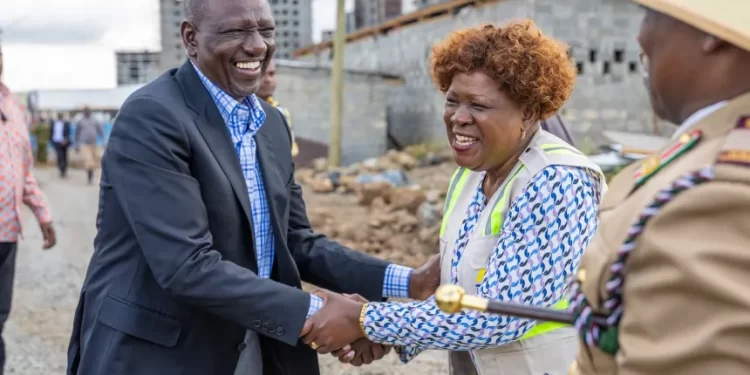Affordable Housing Under Ruto: A Game-Changer for Kenya’s Urban Future
President William Ruto’s ambitious Affordable Housing Programme is emerging as one of the most transformative pillars of Kenya’s Bottom-Up Economic Transformation Agenda. With a target of delivering one million housing units by 2027, the initiative is designed to solve the country’s housing deficit while simultaneously creating employment and revitalizing the economy. At the heart of the plan lies a commitment to restore dignity to urban dwellers, especially those living in informal settlements.
Lands and Housing Cabinet Secretary Alice Wahome has emphasized that the initiative is on track, reaffirming the government’s dedication to achieving its target. Speaking in Laikipia, Wahome urged critics to put aside political differences and support a program that directly addresses the housing needs of millions. “By 2027, we will have built one million housing units. This is not a political stunt. This is about Kenyans’ lives and livelihoods,” she stated firmly.
The government’s plan is to construct 200,000 housing units annually. These homes are designed to be affordable and sustainable, catering primarily to low- and middle-income earners. Beyond improving access to housing, the project is also strategically structured to stimulate related sectors such as construction, manufacturing, and services, creating a ripple effect across the economy.
A major milestone in the project was achieved on Tuesday when President Ruto handed over 1,080 affordable housing units to residents of Mukuru in Nairobi. This handover marked the completion of Phase 1 of the New Mukuru Housing Estate, which is poised to become the largest real estate development in the country’s history. Lot 1 includes more than 5,616 bedsitters, while Lot 2 and 3—currently under construction—will deliver a combined total of 7,632 one- and two-bedroom units.

The Mukuru project represents more than just buildings; it reflects a holistic approach to urban renewal, incorporating infrastructure, sanitation, security, and access to services. “In Mukuru alone, we’re aiming for 13,000 units — and at least 200 homes in every constituency across the country,” Wahome noted. She underscored the vision of offering a more dignified life to Kenyans who have long endured substandard housing conditions.
The Affordable Housing Programme has also been recognized internationally. China’s Ambassador to Kenya, Guo Haiyan, praised the initiative, calling it a revolutionary social welfare program alongside the Taifa Care healthcare rollout. Such commendation underscores the programme’s potential not only to uplift Kenyan communities but also to serve as a model for other developing nations tackling similar housing and social welfare challenges.
Ultimately, President Ruto’s housing agenda represents more than an infrastructure plan—it’s a socioeconomic game-changer. By integrating housing delivery with job creation and economic stimulus, the initiative stands to uplift millions and reshape Kenya’s urban landscape in a bold and inclusive direction.










